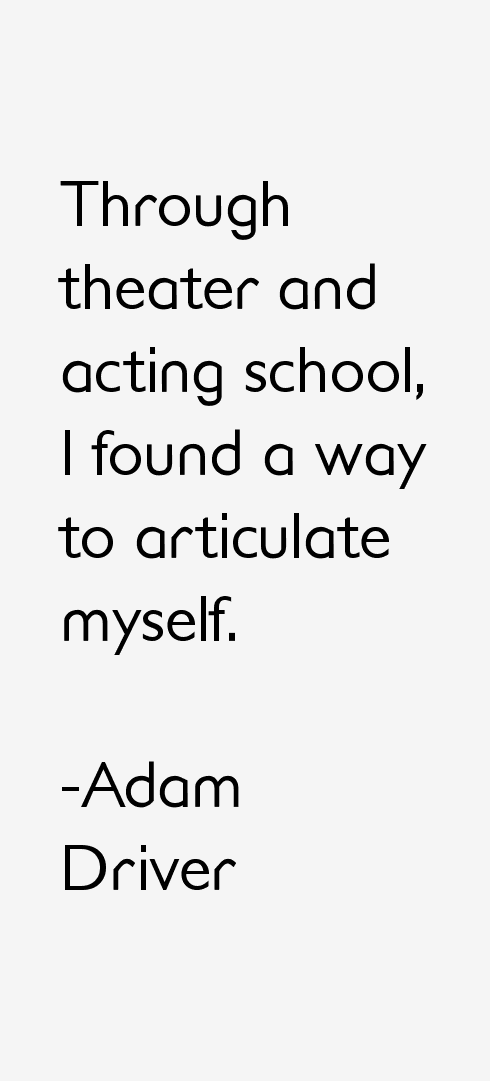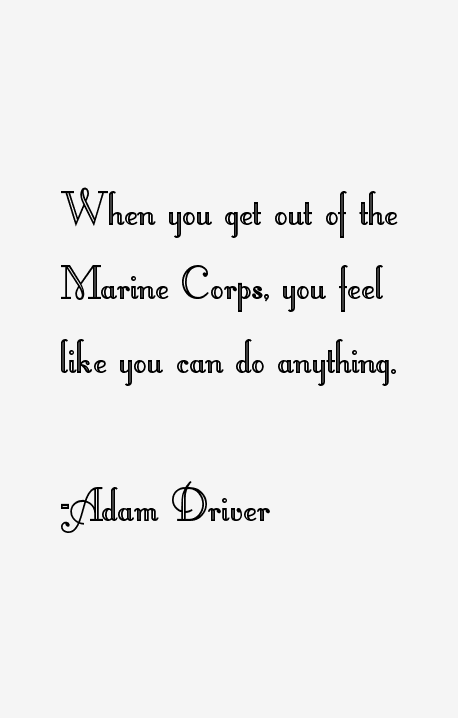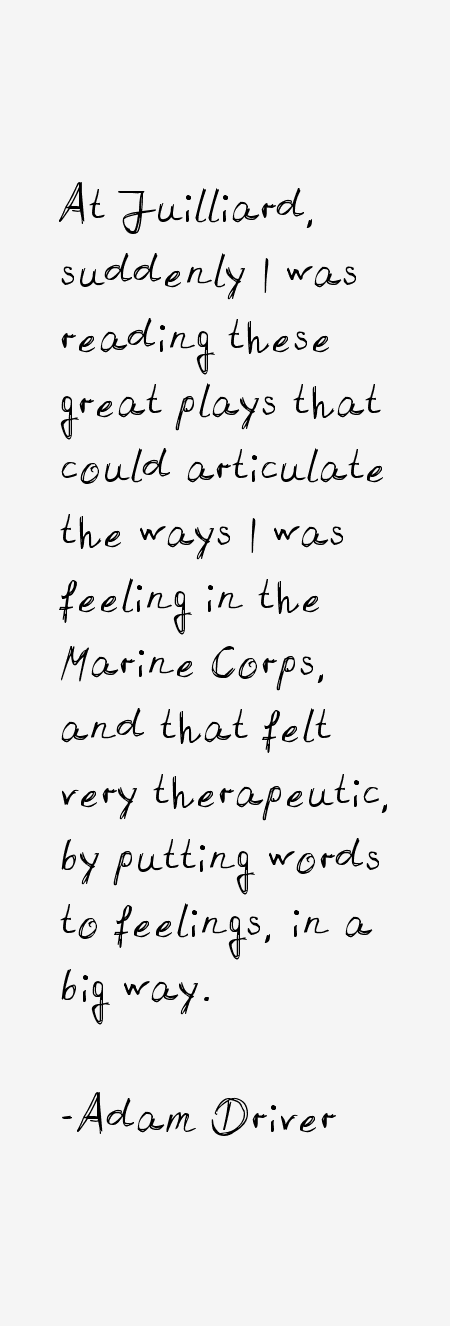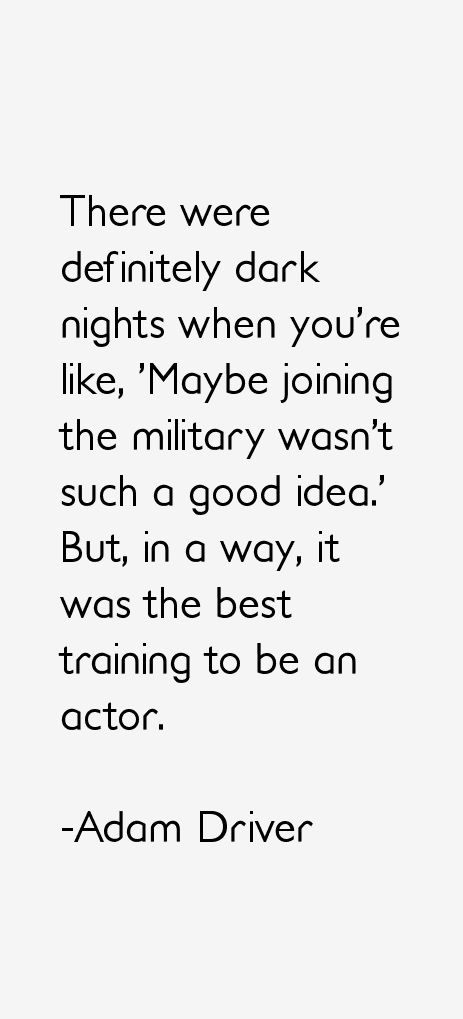Adam Driver Quotes & Sayings (Page 3)
Adam Driver quotes and sayings page 3 (42 year old actor). Here's quote # 21 through 30 out of the 101 we have for him.

“Through theater and acting school, I found a way to articulate myself.”

“When you get out of the Marine Corps, you feel like you can do anything.”

“At Juilliard, suddenly I was reading these great plays that could articulate the ways I was feeling in the Marine Corps, and that felt very therapeutic, by putting words to feelings, in a big way.”
“I did plays in high school, but I was convinced you couldn't make a living doing it. You don't have a lot of options in Indiana anyway, though, so I didn't want to stay there. I graduated early and worked a bunch of really odd jobs, and then I joined the Marines.”
“By the time I got into Juilliard, I was working at a Target distribution warehouse. It didn't make anything, it just shipped things, and my job was just to stand there and look at the security codes on the back of trucks and see if they would lock, and check them in.”

“I think it's a common misconception in the civilian community that the military community is filled with just drills and discipline and pain. They forget that these are humans who are in an abnormal situation.”
“I was having an argument with my stepfather, and he was like, 'Why don't you join the Marine Corps?' And I was like, 'Noooo! Well, maybe, actually... ' I went and saw the recruiter, who was like, 'Are you on the run from the cops? Because we've never had someone want to leave so fast.'”
“I'm one of those crazy people, if I'm watching the trailer for a movie and I'm really excited by it, I'll turn it off because I don't want to know anything. I want to be surprised because I love that more than knowing anything.”
“Just having the internet is a weird and dangerous thing because people become accustomed to knowing things when they want to know them and not having to work for it. I definitely see the value in not knowing everything and having mystery in life and mystery in people.”

“There were definitely dark nights when you're like, 'Maybe joining the military wasn't such a good idea.' But, in a way, it was the best training to be an actor.”
Adam Driver Quotes Rating
No Ratings Yet
Leave A Comment
























